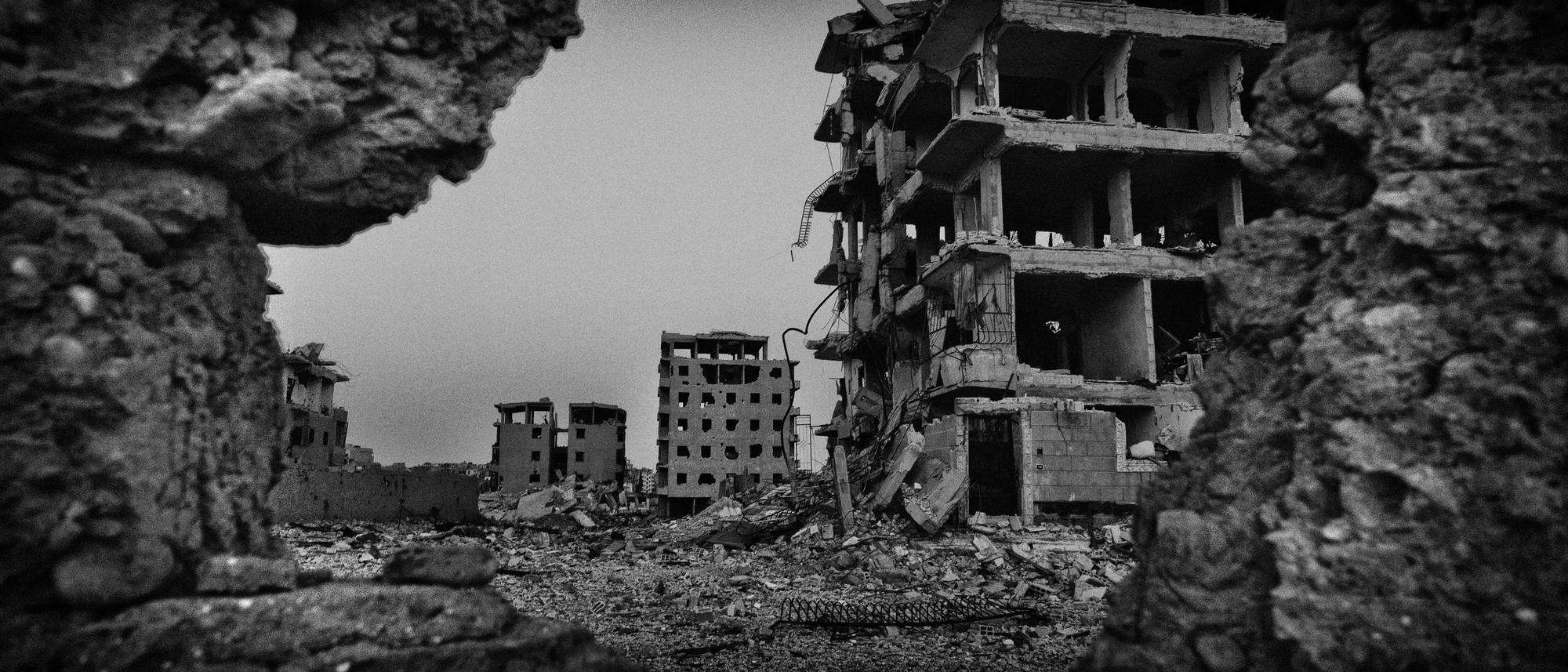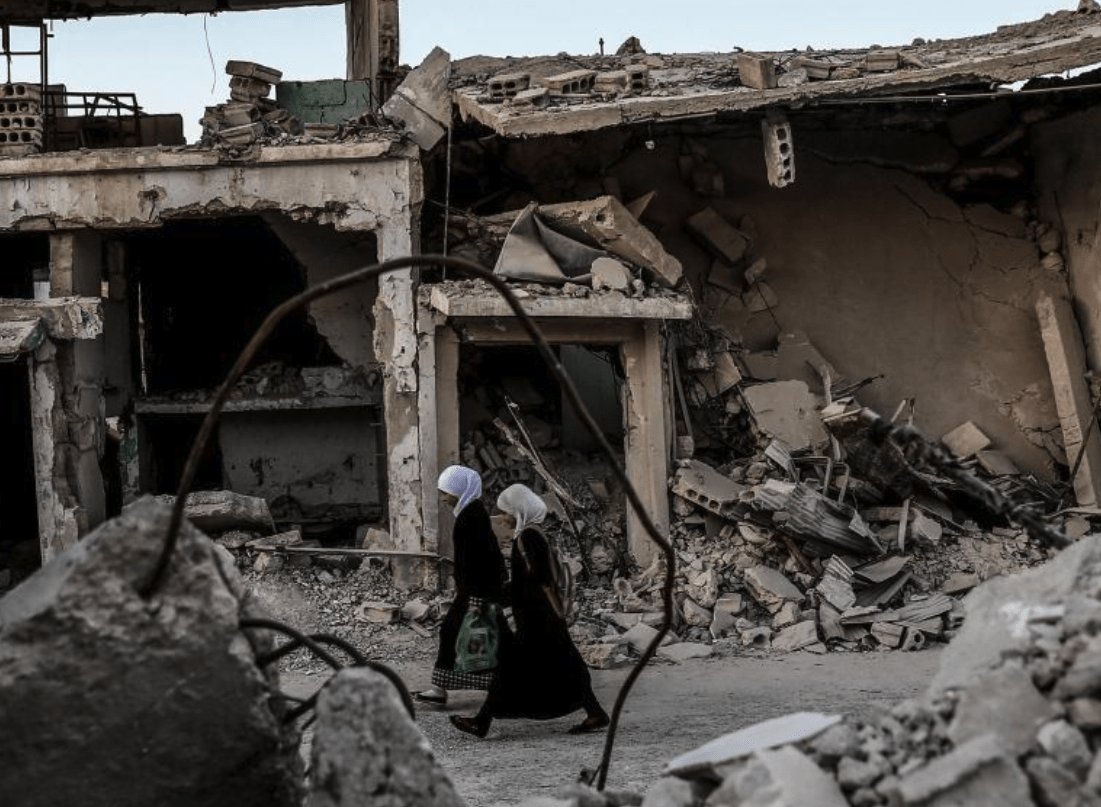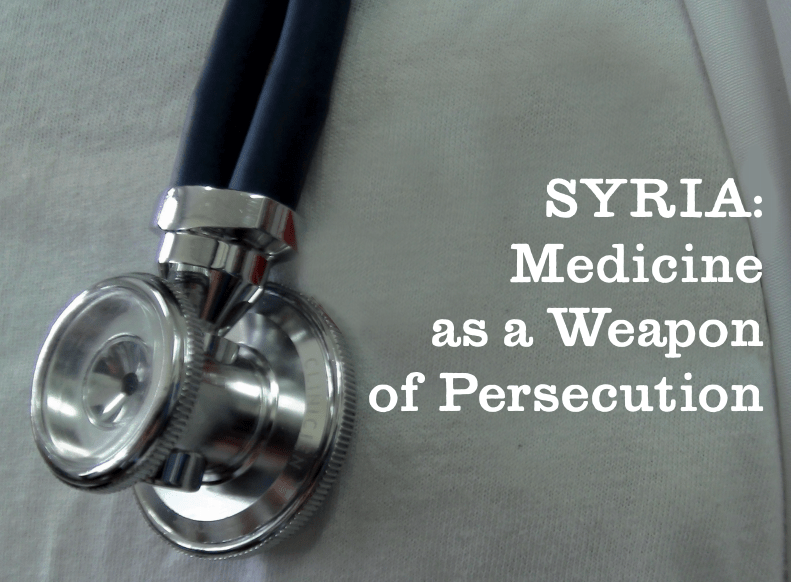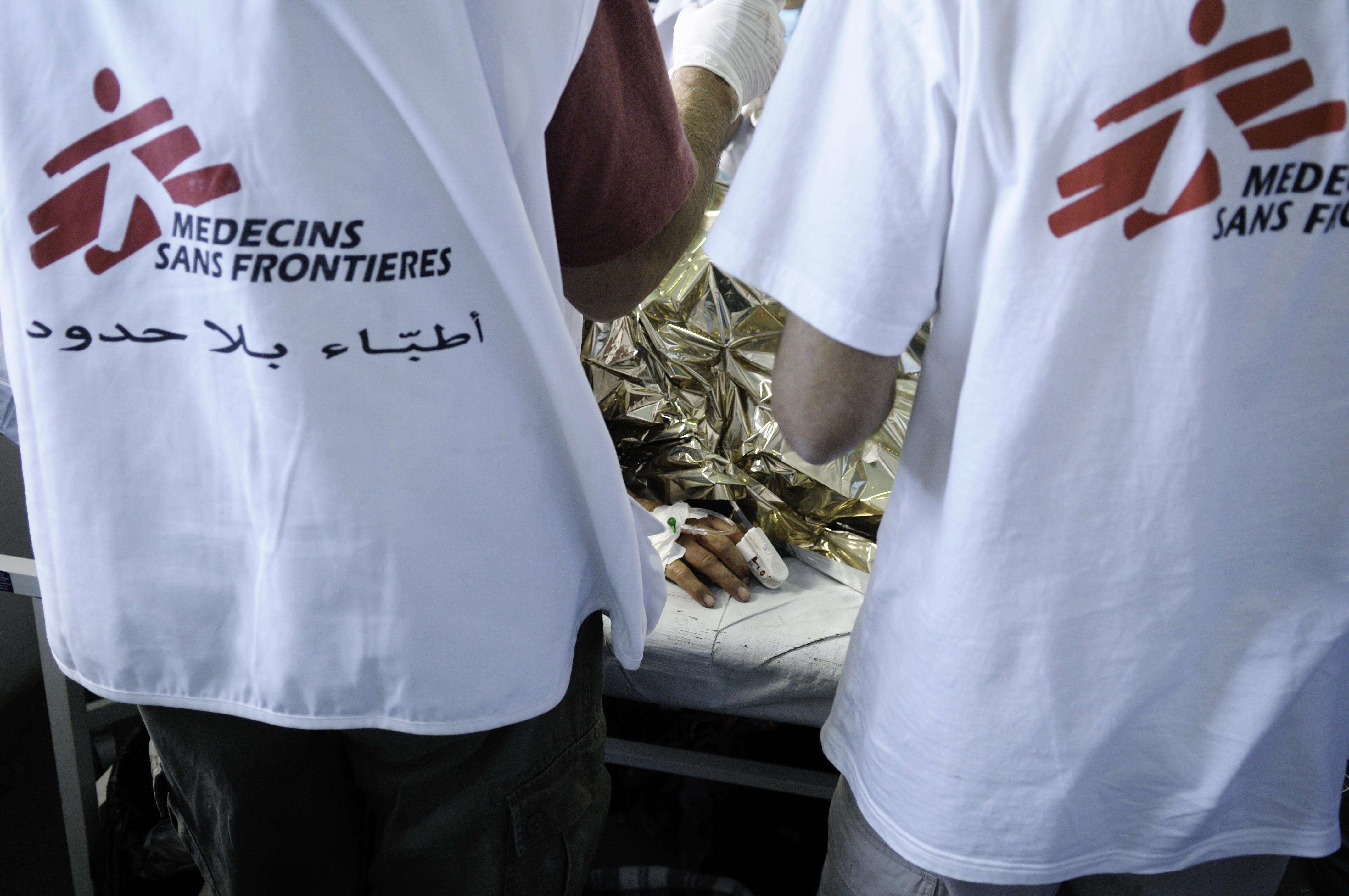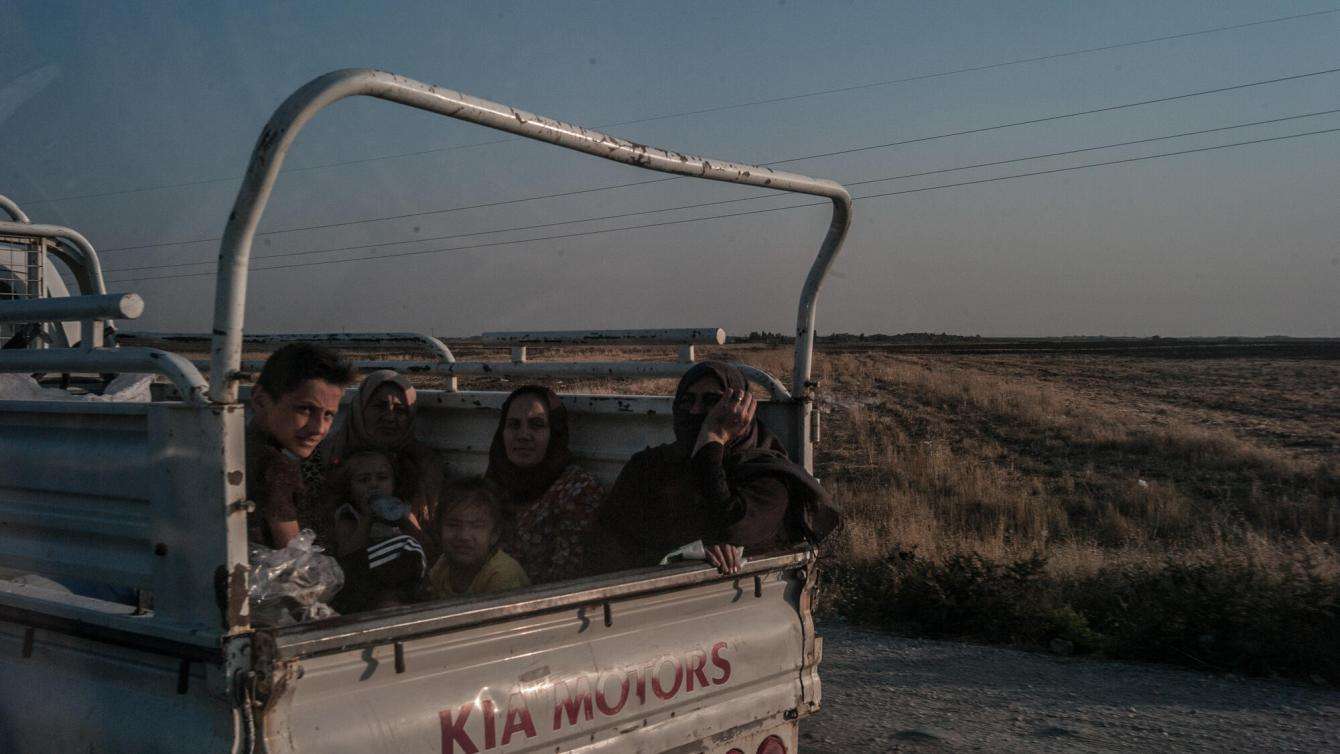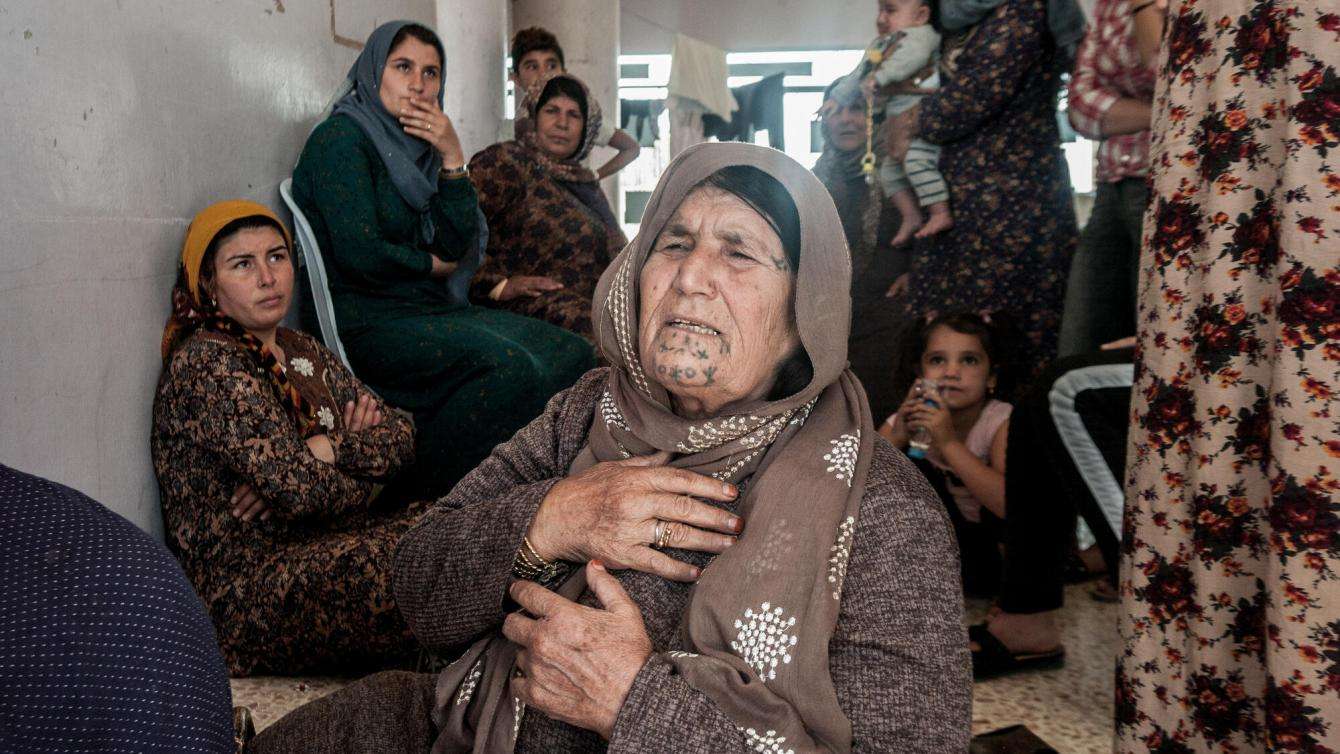For 10 years, Syria has been convulsed by war. Back in 2011, what began as political protests quickly escalated to deadly conflict. A decade later, the humanitarian toll is devastating. Over this period, 12 million Syrian people—half the country’s population before the war—have been forced to flee and leave their homes behind, often multiple times. This is the biggest displacement crisis of the century. Many of those who have been uprooted are still displaced today.
Years of conflict have also destroyed Syria’s infrastructure, especially its health system. Hundreds of medical facilities have been bombed, large numbers of medical staff have been killed or have fled, and there are still desperate shortages of medical supplies in many parts of the country. Today, the medical needs of the Syrian people are immense.
Doctors Without Borders/Médecins Sans Frontières (MSF) has been responding to the crisis in Syria from the start, providing medical care and support to people in need across the country. We’ve donated medical supplies, set up hospitals and clinics, and provided remote support to medical facilities and networks of doctors in areas we couldn’t access directly. Today, MSF supports Syrians both within the country and in several neighboring nations that host Syrian refugees.
This timeline traces a decade of conflict, highlighting the growing humanitarian and medical needs of millions of Syrian people and MSF’s efforts to help them.
2011: Protests turn to armed conflict
In 2011, large numbers of Syrians took to the streets to demand democratic reforms. By March, small protests had grown to massive demonstrations. Protestors were met with police and military violence, mass arrests, and a brutal crackdown, resulting in hundreds of deaths and thousands of injuries. As the protests turned into conflict, Syrians started leaving their hometowns, either for different parts of the country or the safety of neighboring countries.
Unable to access the capital of Damascus, MSF made donations to the Syrian Red Crescent in response to the increasing medical needs and lack of medical supplies in the city.
In neighboring countries such as Lebanon and Jordan, we began tending to Syrians who needed medical care that was unavailable in their country and set up projects to assist refugees who had started to flee their homes.
2012: A full-fledged war
In 2012 the conflict escalated. Despite various attempts to arrange a ceasefire, the conflict soon evolved into a full-fledged war and the number of deaths and injuries increased drastically across the country.
MSF opened hospitals across northern Syria to respond to people’s increasing medical needs. Most were set up in unconventional places, including villas, chicken farms, schools, and basements, after a number of medical facilities were targeted and destroyed in the conflict. In these field hospitals, MSF teams provided emergency medical treatment with a major focus on trauma care and war-related surgeries.
Providing medical care to people within Syria presented unique challenges for MSF from the start of the conflict. To this day we still have not been granted approval to work in government-controlled parts of the country, despite repeated requests for permission. As a result, our areas of intervention have always been concentrated in areas outside government control.
However, we still managed to provide medical assistance to people in need within Syria by supporting networks of Syrian doctors and providing donations of medical and relief items to field hospitals and clinics in Homs, Idlib, Hama, and Daraa provinces.
As the numbers of Syrian refugees in neighboring countries grew, we expanded activities in places like Lebanon’s Bekaa Valley and camps set up in Domeez, Iraqi Kurdistan. Increasing numbers of Syrian refugees were also seeking refuge further afield, moving away from the Middle East and towards Europe.
2013: Medical needs increase
By 2013, Syrians were not only exposed to high levels of violence but also suffered the consequences of a dysfunctional and deteriorating health system. MSF teams started to witness the resurgence of preventable diseases. Cases of measles among children in Aleppo and the discovery of the first case of polio in Syria in 14 years were early indications of a public health breakdown in the country, leading MSF to launch to mass vaccination campaigns in the northeast.
Medical organizations in the country also started to more strongly voice their difficulties meeting peoples’ basic needs, let alone dealing with mass casualties and acute emergencies. Due to the intensity of fighting in southern Syria, we opened an emergency surgical program in Ramtha, northern Jordan, near the Syrian border, to treat war-wounded people unable to receive treatment in the 14 field hospitals in Daraa.
Meanwhile, hundreds of thousands of Syrians were still fleeing the country to seek safety or medical treatment in nearby countries. In response to the massive influx of refugees, these countries started adopting more restrictive border policies. MSF further expanded operations in the region to provide as much assistance as possible to Syrian people in their county and abroad. By the end of 2013, an estimated 1.5 million Syrians were refugees.
2014: Deadly clashes intensify
In 2014, the war grew increasingly bloody. The UN estimated that 6.5 million people had been internally displaced, while more than three million had fled Syria.
Violence and insecurity, tightening sieges and increased shelling, and attacks on health facilities and medical workers prevented MSF teams from providing a more extensive program of medical humanitarian aid. The abduction of MSF staff in 2014 also led us to stop our activities in areas controlled by the Islamic State (IS) group and withdraw international staff in northwest Syria. But we maintained our presence in the country, opening new projects and increasing remote support to medical facilities.
2015: A massive displacement crisis
In 2015, the number of Syrian refugees who had fled the country crossed the four million mark, with thousands attempting dangerous crossings of the Mediterranean Sea to Europe. Another six million were internally displaced within Syria. The conflict had caused the biggest displacement crisis since the Second World War, leaving millions in desperate need of lifesaving humanitarian aid. MSF again increased its activities across the region in response, launching search and rescue operations in the Mediterranean and caring for refugees along their journeys to Europe.
With more foreign countries and parties entering the war, 2015 was characterized by extreme violence: civilian areas were routinely bombed, often in notorious “double-tap” attacks in which an initial airstrike is followed by a second, targeting rescue teams or health facilities receiving the wounded. There were also numerous reports of attacks resulting in symptoms of exposure to chemical agents. At least 1.5 million people were trapped in besieged areas without access to humanitarian aid, health care, or medical evacuation.
In 2015 MSF also supported more than 150 health facilities within Syria, the most to date. But our support did not prevent these facilities from being directly impacted by the conflict. In 2015, 23 MSF-supported Syrian health staff were killed and 58 were wounded. Sixty-three MSF-supported hospitals and clinics were bombed or shelled on 94 separate occasions in 2015, and 12 of these facilities were completely destroyed.
MSF finally gained access to the ravaged city of Kobane/Ayn Al Arab after the IS group was forced out by Kurdish forces with the support of Coalition Forces. We built a hospital in the city only for it to be destroyed during another intense period of conflict after the city was infiltrated by IS group fighters. Despite this, MSF continued to support primary and secondary health care.
2016: Cities besieged
In 2016, siege tactics continued, double-tap attacks increased, and intensified bombing and shelling once again escalated Syria’s humanitarian crisis. By then, many civilian areas had been routinely bombed and deprived of aid. Accessing food and health services was extremely difficult for many people, especially those living in places under siege.
In December, the Syrian government re-took east Aleppo, but not until its residents had lived through the fiercest bombardment of the five-year war. This devastated part of the city became emblematic of the Syrian conflict, with atrocities layered atop one another: siege warfare, the destruction of multiple hospitals, indiscriminate bombing of civilian areas, and a total disregard for the rules of war. Each of the eight hospitals fully or partially supported by MSF in east Aleppo was hit by bombs.
Medical facilities, staff, and patients continued to be victims of both indiscriminate and targeted attacks. In 2016, 32 medical facilities receiving our support were bombed or shelled on 71 separate occasions.
Meanwhile, more of Syria’s neighbors closed their borders to refugees, leaving many people trapped in areas under siege or stranded at borders, blocking access to lifesaving care for war-wounded people.
2017: A deadly race for territory
After a major military offensive on the city of Raqqa, the IS group lost control over large areas of territory in the northeast to US-backed Syrian Democratic Forces. MSF teams treated hundreds of war-wounded people as a result of the intense bombing offensive in Raqqa, as well as those severely injured by booby traps and unexploded ordinances left behind in destroyed homes. Meanwhile, in the south of the country, the Syrian government began retaking territories in the provinces of Daraa, Quneitra, and Suwayda.
These changes in dynamics and the balance of power disrupted our activities in some areas. Eleven MSF-supported medical facilities were hit by bombs or shells on 12 occasions in targeted or indiscriminate attacks.

2018: Waves of displacement
With the intense fighting to gain control over disputed regions and military advances of Syrian government forces, new waves of displacement began in northwestern Syria. These followed surrender terms imposed by the government that granted safe passage to both fighters and civilians who wanted to be transported to other non-government-controlled areas of the country, most often to Idlib province. Meanwhile, in the northeast, people were returning to their homes in ruined towns and cities full of booby traps and landmines.
From February to April, east Ghouta, in the suburbs of Damascus, saw one of the heaviest bombardments since the beginning of the war. Many health facilities were hit and around 2,000 people were killed during the offensive, which ended with the Syrian government taking control of the suburb.
In places like Daraa, east Ghouta, Hama, and Homs, MSF was unable to continue its work and support to medical facilities when these areas were retaken by the Syrian government. At this time we increased our medical support in the north of the country.
2019: Military operations in the North
In 2019 the conflict continued, mainly affecting northern Syria.
In the northwest, hundreds of thousands of people were displaced by an offensive launched by Syrian government forces and their allies, notably Russia, in Idlib province, the country’s last opposition stronghold. Most newly displaced people fled to regions where no clean water or medical care was available. They had few options, as most areas that were considered relatively safe were already overcrowded and overstretched in terms of humanitarian assistance.
In northeastern Syria, MSF scaled up activities as a rapid influx of more than 60,000 displaced people arrived at Al-Hol camp, in Hasakah district, most of them from the IS group’s last strongholds in Deir Ez-Zor governorate. Later that year, the Turkish military, alongside allied Syrian armed opposition groups, launched the “Peace Spring” operation, aimed at clearing the Kurdish People’s Protection Units from a strip of land about 19 miles long and 273 miles wide along the Turkish border.
On top of continuous conflict and displacement, Syria was going through its worst economic crisis in years and the Syrian pound reached an all-time low on the black market, making people’s lives even more difficult.
2020: Military offensive, economic crisis, and a global pandemic
2020 started with the continuation of a huge military offensive in northwestern Syria, resulting in the displacement of around one million people. Many of them had already been displaced within the area and had fled conflict multiple times in previous months or years.
The COVID-19 pandemic further worsened the already precarious health situation in Syria. Four months after the pandemic was officially declared, the disease made its way into Idlib, with the first case confirmed on July 9. The first COVID-19 cases were among the medical community and this became a growing concern over the following months. Even prior to the outbreak, human resources were so limited in the health sector that hospitals in the region often had to share medical staff in order to remain open. Just a few doctors put out of work by the virus could seriously jeopardize access to health care.
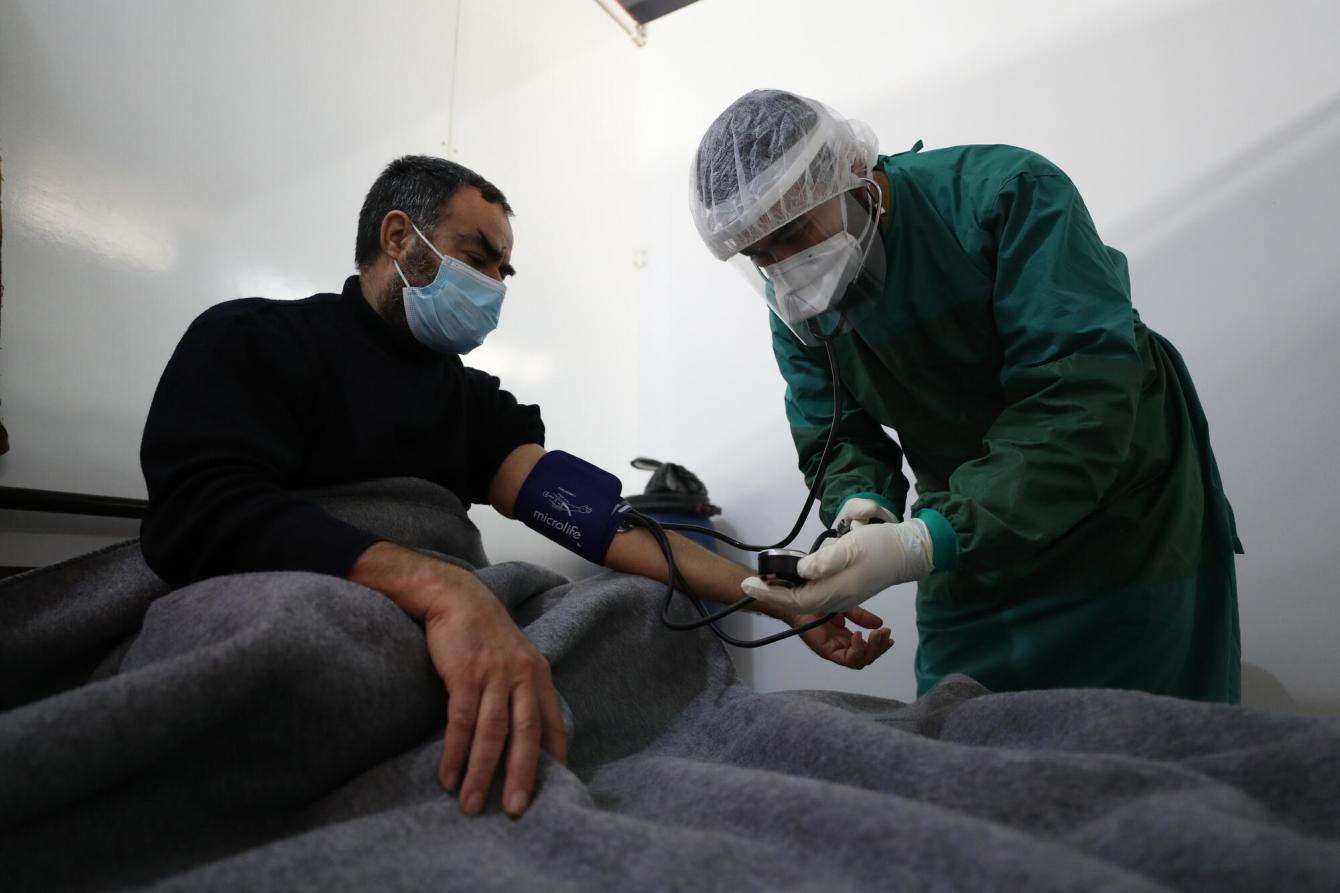
Meanwhile, Syria’s economic crisis continued and the record-breaking depreciation of the Syrian pound meant many people couldn’t afford even the most basic necessities such as housing, food, and health care. Refugees in some neighboring countries, like Lebanon, were also affected by economic crises.
Nine years of war had left the Syrian health care system in shambles, with limited supplies, few medical staff, and health facilities that were often closed or no longer functioning.
March 2021: The humanitarian catastrophe continues
A decade later, the conflict continues and Syrian people are still suffering. Currently, almost 12 million Syrians are displaced inside and outside Syria. Some 5.6 million refugees are scattered throughout the world, the majority in Turkey, Lebanon, Jordan, Iraq, and Egypt. More than six million people are displaced inside Syria—the most of any country in the world. Nearly all of them are living in precarious conditions. A record 12.4 million Syrians—nearly 60 percent of the population—are now food insecure, according to alarming new national data from the UN World Food Programme.
MSF teams will keep doing everything we can in Syria to provide medical aid to those who need it most.
